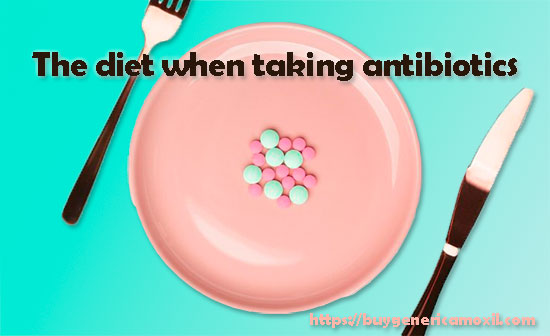For the treatment of most infections caused by pathogenic bacteria, special medications are prescribed – antibiotics. Some of them have a wide range of actions: they destroy a large number of microorganisms. Others-affect only certain species. It is known that the use of antibiotics can lead to unpleasant side effects. “In particular, these drugs affect the intestinal microbiota, killing not only pathogenic bacteria, but also beneficial microorganisms,” says the endocrinologist. – Taking such drugs in a large volume can dramatically change the number and types of bacteria in the microbiota. Even a week – long course of treatment can change the intestinal ecosystem for up to a year.” So what should be the diet when taking antibiotics?

The gut microbiome supports the digestive system, participates in metabolism and immune system reactions. Some studies have shown that changes in the microbiota caused by excessive use of antibiotics in youth can increase the risk of developing obesity in the future. In addition, the fascination with these drugs causes the resistance of bacteria to antibiotic therapy, which makes it ineffective. By changing the amount and ratio of the intestinal microbiome, antibiotics can also cause a malfunction of the gastrointestinal tract, causing diarrhea, flatulence, nausea, abdominal pain, loss of appetite. And in more severe cases, it can disrupt the absorption of many micro-and macronutrients, vitamins and minerals.
Rules of nutrition during taking antibiotics
If you include certain foods in your diet, you can prevent unpleasant side effects from taking antibiotics, as well as quickly and effectively restore the body’s microbiota after treatment. We tell you what diet should be when taking antibiotics and what should be on the menu.
The diet when taking antibiotics: Fermented foods
These are fermented milk products (yogurt, kefir), some types of cheeses, sauerkraut, kimchi, miso. Fermented foods are a good source of beneficial bacteria, such as lactobacilli, which restore the intestinal microbiota to a healthy state after taking medications. It is proved that in the intestines of those who regularly eat fermented dairy products, for example, natural yogurt, there are more beneficial lactobacilli and fewer pathogens, such as Bilophila wadsworthia. Kimchi and fermented soy milk have a similar positive effect. They stimulate the growth of bifidobacteria. There are also a number of studies that have found that the use of natural or probiotic yogurt reduces diarrhea in people taking antibiotics.
Foods with a high fiber content
Fiber is necessary for the intestinal microflora: it not only stimulates the growth of beneficial bacteria, but also reduces the growth of some pathogenic microorganisms. Dietary fiber helps to restore the intestinal microbiota after a course of antibiotic therapy. Products with a high fiber content include:
- whole grains (cereals, whole grain bread, brown rice);
- nuts and seeds;
- legumes (beans, peas, lentils);
- berries;
- broccoli;
- bananas, artichokes.
“I must say that dietary fiber slows down the evacuation of stomach contents, which can disrupt the absorption of medications,” says our expert. “Therefore, it is best to avoid foods with a high fiber content directly while taking antibacterial drugs, and introduce this food group into the diet between medications and after stopping antibiotic therapy.”
Probiotic products
This is a food that helps the growth and nutrition of beneficial bacteria of the intestinal microbiota. Most prebiotics are dietary fibers. Manufacturers sometimes add prebiotics to food products, such as: yogurt, baby formula, cereals, bread. Prebiotics can be labeled on food labels as:
- galactooligosaccharides;
- fructooligosaccharides;
- oligofructose;
- chicory fibers;
- inulin.
What foods should I avoid
Some foods, even useful ones, should be excluded from the diet during antibiotic therapy: such products reduce the effectiveness of treatment. For example, studies have shown that against the background of taking antibiotics, it is not recommended to use grapefruit and grapefruit juice. These products can disrupt the metabolism of the drug. Food with the addition of calcium can also affect the absorption of antibiotics. In the course of research, it turned out that dietary supplements with calcium can reduce the absorption of various antibiotics. Alcohol consumption should be avoided while taking any medications, including antibacterial agents.